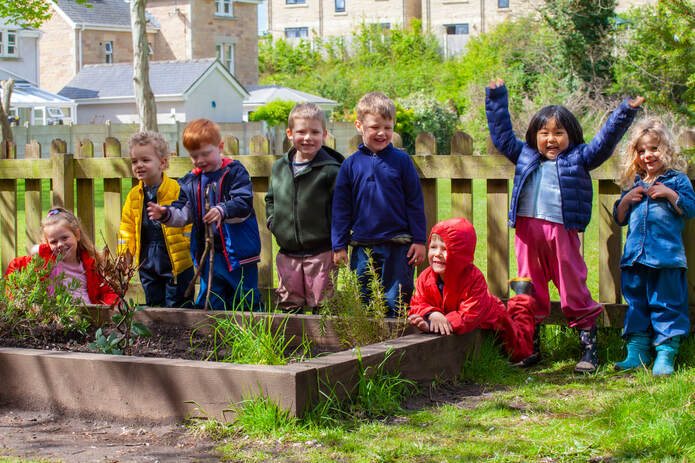The most important thing in the world is FAMILY and LOVE...
How to boost your child's well being...
Wellbeing is a popular term nowadays but what does it mean and how can we ensure our children have it? Our physical, mental, emotional and social health are all equally important and all contribute to our wellbeing. As parents, educators and childcare workers, it is important that we foster this in our children from an early age.Through being good role models for our children and developing positive thinking and behavior patterns in them we can help improve our children’s wellbeing, as well as teach them lifelong skills to maintain this into their adult life.
Here are five practices that you can adopt to improve children’s wellbeing:
1. Physical activity
Exercise is essential for everyone, especially children. There are a lot of benefits gained from exercising, including that it fosters a positive mood and releases the stress of the day. After a day of thinking, children need to be outside in the fresh air either playing sport or simply playing.
2. Technology time
There is so much technology available to children nowadays but it is important to limit the time children spend having screentime. It is easy to use technology as a babysitting device but children should be restricted to a maximum of two hours per day, which includes television, computers, iPads et cetera. Setting clear and consistent guidelines from an early age makes it much easier to reinforce these limits. Most technology has timers so it easy for children to know when their time is up!
3. Foster positive relationships
Developing positive relationships with others is very important for children’s wellbeing. The benefits from time spent with friends and family is that they learn to share, compromise and listen, as well as develop conflict resolution skills. Fostering these relationships as a child will also help them maintain relationships in their adult life.
4. Sleep
Sleep is an important element in maintaining good mental and physical wellbeing. Ensuring your child gets enough sleep each night is one of the most important practices you can develop as a parent. It is never too late to establish a night time routine. This may include a bath, reading a story or listening to quiet music. Make sure the technology gets turned off one or two hours before bedtime to allow your child’s brain to unwind and relax.
5. Build resilience
Being resilient is one of the most important qualities to develop in children. The ability to learn from mistakes and accept feedback, be persistent and not give up easily will help maintain a positive wellbeing in children. Through modelling these qualities yourself, parents and educators can help children bounce back and move past mistakes and problems. Letting go is one of the best ways to maintain a healthy wellbeing.
And don't forget...
"When life gives you crumbs, feed the birds.”
Here are five practices that you can adopt to improve children’s wellbeing:
1. Physical activity
Exercise is essential for everyone, especially children. There are a lot of benefits gained from exercising, including that it fosters a positive mood and releases the stress of the day. After a day of thinking, children need to be outside in the fresh air either playing sport or simply playing.
2. Technology time
There is so much technology available to children nowadays but it is important to limit the time children spend having screentime. It is easy to use technology as a babysitting device but children should be restricted to a maximum of two hours per day, which includes television, computers, iPads et cetera. Setting clear and consistent guidelines from an early age makes it much easier to reinforce these limits. Most technology has timers so it easy for children to know when their time is up!
3. Foster positive relationships
Developing positive relationships with others is very important for children’s wellbeing. The benefits from time spent with friends and family is that they learn to share, compromise and listen, as well as develop conflict resolution skills. Fostering these relationships as a child will also help them maintain relationships in their adult life.
4. Sleep
Sleep is an important element in maintaining good mental and physical wellbeing. Ensuring your child gets enough sleep each night is one of the most important practices you can develop as a parent. It is never too late to establish a night time routine. This may include a bath, reading a story or listening to quiet music. Make sure the technology gets turned off one or two hours before bedtime to allow your child’s brain to unwind and relax.
5. Build resilience
Being resilient is one of the most important qualities to develop in children. The ability to learn from mistakes and accept feedback, be persistent and not give up easily will help maintain a positive wellbeing in children. Through modelling these qualities yourself, parents and educators can help children bounce back and move past mistakes and problems. Letting go is one of the best ways to maintain a healthy wellbeing.
And don't forget...
"When life gives you crumbs, feed the birds.”
Supporting your family’s health and well-being through COVID 19...
A story about Corona Virus explanation for children
How to teach Healthy hand washing
Healthy hand washing: a resource for children on how to wash your hands
Keeping healthy resources at Change for Life NHS
Home safety: a guide for parents
Managing transitions
Lancashire's children and well-being service information
NSPCC has some great resources too.
How to teach Healthy hand washing
Healthy hand washing: a resource for children on how to wash your hands
Keeping healthy resources at Change for Life NHS
Home safety: a guide for parents
Managing transitions
Lancashire's children and well-being service information
NSPCC has some great resources too.





